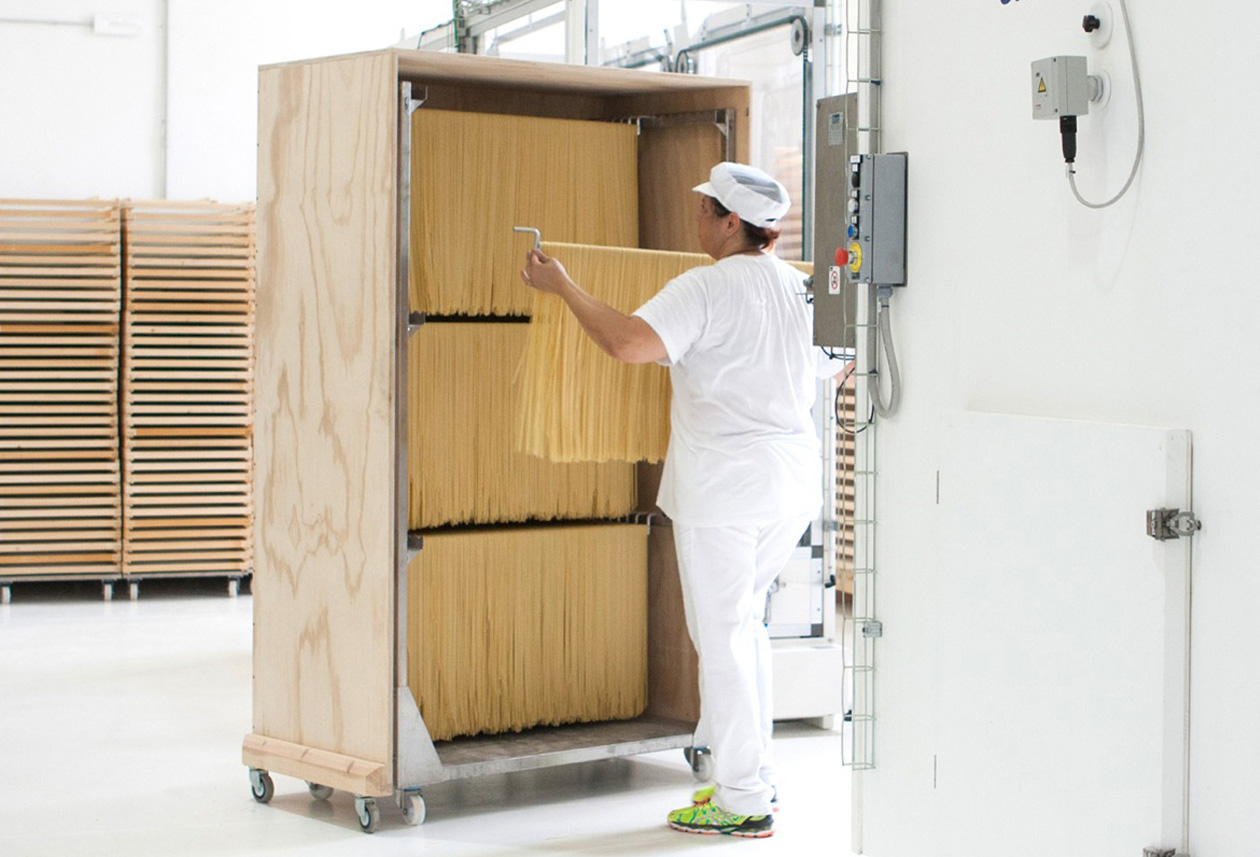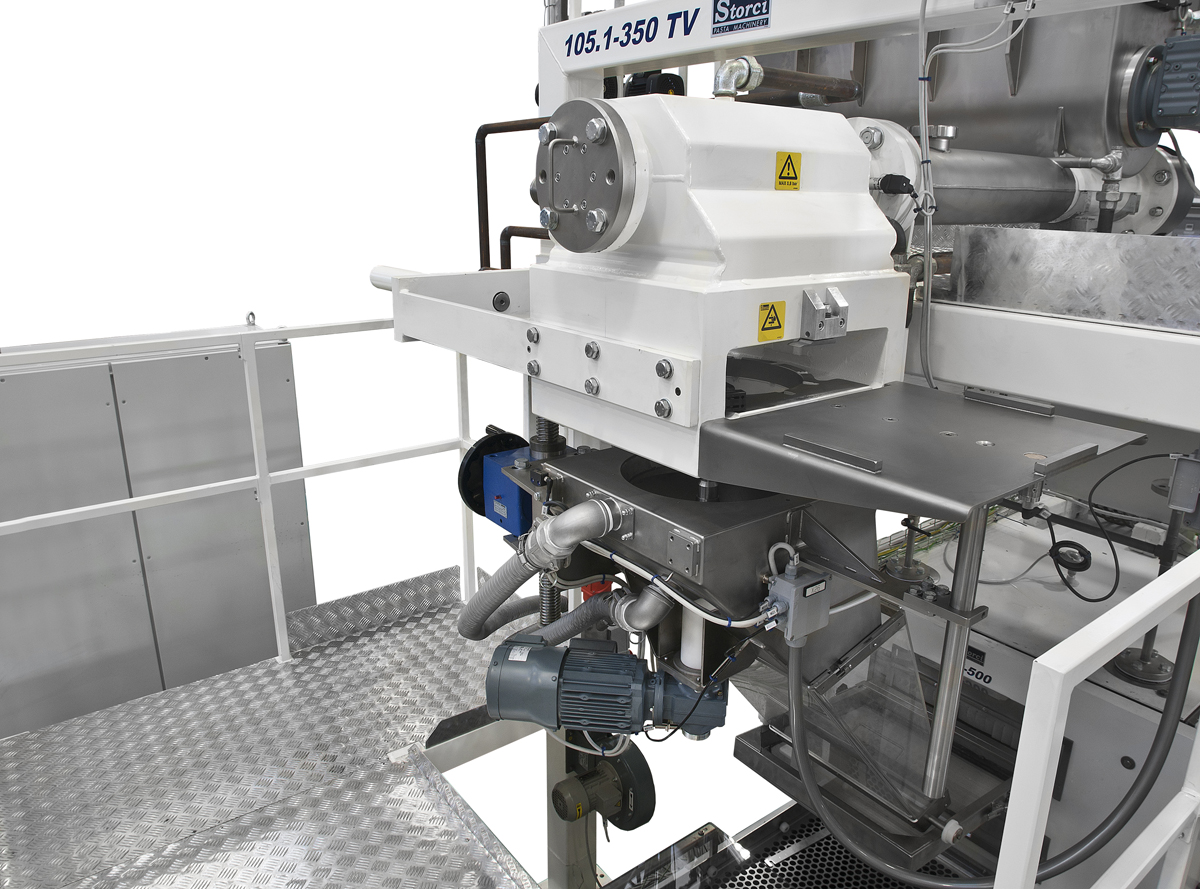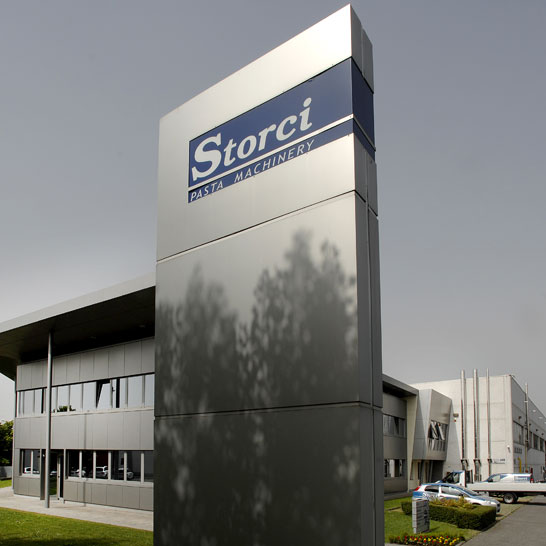
Whoever sets up a pasta factory does not worry as thousands of entrepreneurs do because the difficulties of this sector do not lie in the market demand. Those who produce dry pasta know for sure that they will sell it. The success or failure of a pasta factory, in fact, does not lie in the "if", but in the "how" it is sold. Maintaining high retail prices with marketing means only, is a great way to increase marups without upsetting production costs.
Over the past 10 years, food-related television broadcasts have flourished and consequently contributed to giving a further boost to pasta recipes, from the simplest ones to the most refined. Sustainability, the use of renewable resources, the need for greater food democracy for the whole planet, inevitably indicate the route towards low-cost, easy to distribute and low environmental impact food products.
All these factors lead to the increase in pasta consumption, at the expense of what is the flimsiest popular belief. Dry pasta has been regarded as a saturated product for years, with no future although the data have invariably proved it wrong. In this article, therefore, we will not focus so much on the growth prospects of a pasta factory, but on the most common strategies used by pasta factories to maintain high selling prices.


If you are not already expert pasta makers, we suggest to deepen the topic of how dry pasta is produced continuously, first reading our previous article clicking here, where a video will let you enter the working reality of a pasta factory of a client of ours, that you can play on here below. It is a process with an hourly production lower than 350 kg / h, although the steps are the same. In fact, changes basically consist in the size of the machinery and the addition of accessories necessary to increase the automatisms, which are important for the management of large quantities. The production flow, however, is the same. It is a process with an hourly production lower than 350 kg / h, although the steps are the same. In fact, changes basically consist in the size of the machinery and the addition of accessories necessary to increase the automatisms, which are important for the management of large quantities. The production flow, however, is the same.

Circular head with a 105 mm screw cutting group for a press hourly production of 350 kg/h
Find out how Nikkoku Seifun Corp. produces excellent dry pasta with our machines in Japan!

Consumers are nowadays detail-oriented and business opportunities for pasta factories are so many.
At the expense of the big brands that dominated the market until the 90s, today everyone knows the difference between slow drying and high temperature drying in dynamic ovens. Furthermore, the bronze die is now synonymous with craftsmanship, compared to the teflon die.
Lately, however, attention has increased for many other styles of consumption. We are listing here a few, although fantasy has no limits in this sector, indeed.

This is perhaps the most innovative and profitable novelty in the world of dry pasta. High quality pasta that, before drying, is carried inside a steam chamber making possible its passive cooking. The outcome is still dry pasta but, thanks to the heat treatment processed, ready in three minutes just adding some boiling water without the need for flames or heat sources. The method has met a great success with the most famous chefs, thanks also to the considerable energy and water savings of this cooking technique. The opportunities are endless, just think of lunch breaks at work and exportation not only to Anglo-Saxon countries but also to developing countries, where water is precious and cannot be used for cooking classic dry pasta. Markups are also beyond imagination for the sector. One kg of instant noodle pasta sold in single portions costs on average € 15 per kg, even if raw materials used to produce it are always the same. Watch the instant noodle pasta making video!

By ancient grains we mean all those grains used in Italy up to the 1960s. Yes, indeed, they are not so ancient, but we are talking about a period in which pasta industrialization had not yet led wheat producers to genetical modification of crops to get the greatest possible production in confined spaces as well as a high yield. Many studies, in fact, tend to confirm the thesis that the greater incidence of food diseases such as celiac disease are linked to the industrialization of wheat. The use of ancient grains is not a trend; it is a specific market request for a healthier and more eco-sustainable diet. The pasta factory capable of implementing correct communication on its mission based on health and environment, can also ask the consumer for a premium price of € 5 per kg.

Just 15 years ago, nobody knew of this food intolerance whereas today it is a real pathology, certified by the Ministry of Health. A person out of 120 suffers, to some extent, from this disease in Italy and there are about 600.000 people benefiting from the prescription of these products by the NHS. Distribution must be made here and there with a good logistic organization, including selling points everywhere in Italy, with a shelf price of € 8 per kilo. Being a product that can be prescribed by NHS, the cost will not be borne by the consumer. The producer, however, must take a great care in offering a product of very high quality. The search for excellent products is really a heavy job.

The most common dry pasta costs an average of € 2.6 per kg on the shelf. Of this amount, more than half covers distribution and promotion costs such as large-scale distribution, sale representatives, transporters, advertising ... if, to all this, there is packaging cost to be added, it is obvious that the part for the producer is reduced so much to become a real lack of respect for his work. If you want to produce a classic dry pasta respecting your work, Coldiretti offers markets to exhibit products. In addition to keeping your margin intact, you can offer the consumer a product that has not been transported on tires or that has been stored in unknown warehouses scattered who knows where. Quality, eco-sustainability, consumers and producers find in this space a deep respect for their expectations and needs. Pasta is a primary good and as such, it deserves all the possible respect.

“Let's save the planet!”. In the early 2000s that was just a slogan of a few people labelled as radical chic. It is a planetary emergency, now, recognized by all the major world powers and the entire scientific community. We are surrounded by plastic even where it is not needed.... and plastic is not necessary to pack pasta: dry pasta used to be sold in paper rolls. We could go back to eco-friendly packaging systems with zero impact and that will be good both for the planet and business. Today, consumers are well-prepared on the subject and will not fail to reward those who take good care of the environment.
The Fourth Industrial Revolution (or Industry 4.0) is the ongoing automation of traditional manufacturing and industrial practices, using modern smart technology. The Internet of things (IoT), improved communication and selfmonitoring, that can analyze and diagnose issues without the need for human intervention, is integrated in this process. Thanks to this system, in case of need, our technicians can intervene without being physically on the spot and the company can monitor each situation, like the alarms status and the production phase. We have also created specific working stations, undergoing further evolution, to give remote technical assistance to the Customer with the help of detectors and webcams, Storci staff can pilot the technician of the pasta factory, wherever he is. For more information watch the video!
Email us, we are here for you

We are also present in the USA to provide you with assistance and support for all requests and needs.
Storci S.p.A.
246 NW Plaza Dr., Riverside, MO 64150, United States
Since 1991 we have been working in the pasta machinery sector, in the pursuit of technology and innovation, making sure that the right attention is always given to tradition. Our team consists of active and expert professionals, set in a lively and versatile organization, operating with a sole aim: Customers' satisfaction. Whether it be engineers, technologists, mechanics, designers, customer service...our staff always make sure that the possible Buyer can fully reach his goal. We guarantee expertise and a great cooperation. Although it is no longer a family-run business, due to the great growth of the past few years, the Company has been keeping up its original philosophy as its main feature, towards both its Partners, thanks to a successful cooperation, exchange of views and mutual trust, and especially its Customers. This attitude also applies to the people working in the Company and we continuously pay attention to training and refresher courses, because we are aware of the appreciation of each individual and of the positive outcome this has on the whole team.

Strada Lemignano 6, a Lemignano di Collecchio in provincia di Parma - CAP 43044
ITALIA